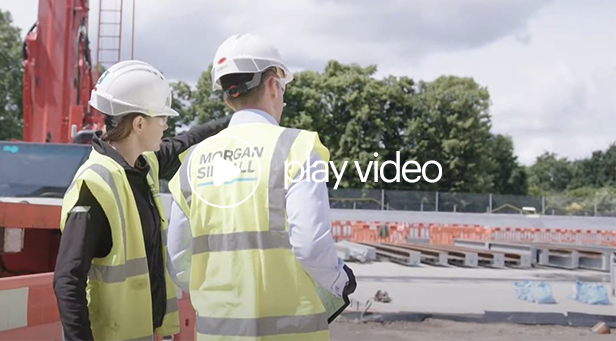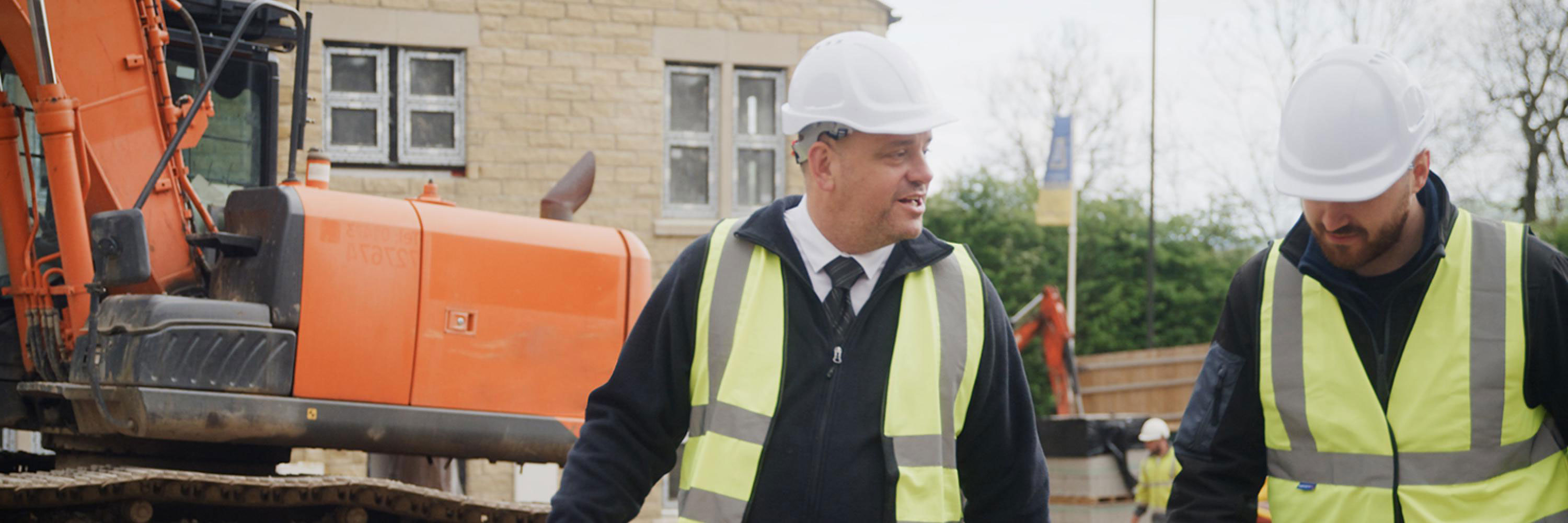making a career change into the construction industry.
latest construction jobs-
making a career change into the construction industry.
-
 04 July 2022
04 July 2022from an unfulfilling corporate role to a new career in construction.
Shaun faced a difficult work culture and experienced workplace bullying. Landing his dream construction role with Vinci completely transformed his mental wellbeing for the better.
-

a drastic career shift from opera singer to site manager.
Former opera singer Kate decided to follow her heart and pursue a career in construction and now works as a site manager for Morgan Sindall.
-

a new career as a quantity surveyor.
Calum, an experienced quantity surveyor at Morgan Sindall shares his advice to those looking to pursue a career as a quantity surveyor.
-

interview question tips for site manager jobs.
If like Kate, you're looking to become a site manager, whether that be a new career change or career progression, our article will give you all of the advice and tips you need to nail your interview.
frequently asked questions.
-
what jobs are there in construction?
When it comes to construction jobs in the UK, there are plenty of opportunities available depending on what project you wish to work on. Some popular roles in the construction industry include:
-
maintaining and restoring historic buildings and landmarks
-
erecting tall structures such as towers and large-scale commercial buildings
-
major infrastructure projects including railways and land development
-
developing retail and leisure spaces such as hotels and shopping districts
-
sports and recreation projects such as stadiums and sports complexes
No matter what type of construction job you’re looking for, there are plenty of career opportunities available in construction and property at Randstad.
-
-
how to get construction jobs in the UK?
To get a construction job in the UK, start by identifying the type of role you’re interested in. Options range from labourer and tradesperson roles, such as carpenter or electrician jobs, to more specialised positions like architects and civil engineers. Next, check that your qualifications and experience meet the minimum requirements for the job you want to apply for. Then, sign up with Randstad and browse our job board to explore current opportunities in construction and property.
-
what is the highest paying construction job?
Currently, the highest-paid construction job in the UK is that of a commercial manager. As a commercial manager, you earn an average salary of £85,000, reaching up to £109,200 in some regions. This management role is primarily responsible for overseeing the budget and finances of construction projects. Other high-paying construction jobs include senior project managers, architects and quantity surveyors. Salaries for these construction jobs can vary based on the type of project, location and level of experience.
-
what construction job is most in demand?
Construction industry workers are in high demand across the UK, with plenty of construction job vacancies available. Tradespeople are among the most in-demand construction professionals, including plumbers, engineers, HVAC technicians, welders and metal fabricators. These roles are essential to keeping projects on schedule and meeting the growing demand for housing and infrastructure. As the industry continues to prioritise project oversight and environmentally responsible building practices, other in-demand roles include quantity surveyors, construction managers, and sustainability managers.
-
what qualifications do I need to be a construction manager?
To qualify for construction manager jobs in the UK, you will typically need an undergraduate degree, such as a bachelor's in a relevant field. Some common fields of study include construction management, civil engineering, business or project management. You can also pursue a National Vocational Qualification (NVQ), which is a practical route into the construction industry and often leads to ongoing construction projects. Alternatively, an apprenticeship is a valuable way to gain hands-on experience while working toward professional certification.
-
how to apply for construction jobs?
To apply for Randstad construction jobs, start by browsing the job board for roles that match your skills and experience. Update your CV with construction-relevant details, including work history, qualifications and industry-specific skills. Make sure your contact information is up to date. Then, create an account with Randstad and submit your CV along with a tailored cover letter that explains why you’re a strong fit for the role.
let's find work.
our industry specialisms.
construction jobs overview.
we have thousands of construction jobs to offer you. Below are key construction career insights for our top jobs.
-
project managers
Construction projects are structured and have multiple moving parts. For instance, building a residence or shopping mall comprises numerous steps requiring a construction project manager to coordinate the process.
Essentially, construction project managers, organise and bring together the necessary resources to complete a building. Unlike other projects, constructions are mission-based and have a variety of constraints unique to the building design. Consequently, being the project coordinator for a residential building isn't the same as a commercial property.
The types of construction project managers depend on the employer or the project. A construction project manager working for a contractor to oversee a project is often based at the construction site. If that is the case, the job of a construction project manager is to supervise other employees on the site and manage resources on behalf of the contractor.
-
site managers
The duties of a Site manager usually begin before the construction project even starts. The job of a site manger is to essentially supervise a construction site and run construction projects.
A site manager will be required to set out the site, position vehicles and equipment as required, and organise various facilities to ensure the location meets various health and safety standards. A crucial site manager duty is to ensure the project will meet the builder's specifications, budgets and allotted time.
Site managers are also required to liaise with various personnel, clients and the general public as required. In addition to this, they will often need to supervise staff members, motivate the overall workforce, solve problems that are occurring on the site and meet with various workers to discuss their needs.
-
labourer
Labourers are employed to work on construction sites and typically carry out everything from bricklaying, carpentry and plastering to digging trenches. While being a labourer is an enjoyable role, it can be a physically demanding job and you need to be fit to do it. The working environment of a labourer is often weather dependent and could be split between working outside in the sun or during winter, possibly even the snow!
One of the great advantages about becoming a labourer is that you don’t need any experience as such. Most labourers learn on the job or through an apprenticeship. Many employers do expect you to have some experience so if you haven’t undertaken an apprenticeship you’ll need to sharpen up your skills elsewhere. It's the perfect opportunity to begin a progressive career in construction.
-
quantity surveyor
Quantity surveyors work within the land management, property and construction industries. They are the people responsible for calculating and managing the costs relating to projects, from helping create initial estimates to finalising the complete budget requirements. One of the many advantages to becoming a quantity surveyor is that no two projects are ever the same and there is a great deal of variety, which can be quite interesting for someone who enjoys a diverse role.
Quantity surveyors usually spend a lot of their working day preparing tender and contract documents, carrying out cost analysis, monitoring cost variations and writing reports, finding out the client requirements and undertaking feasibility studies, allocating work to subcontractors and making payments. Site visits are also a big part of the job for a quantity surveyor, where they are required to make assessments on financial projections for future work.
-
maintenance engineer
While the role of a maintenance engineer is complex, in short; maintenance engineers apply engineering concepts to ensure the smooth running of industrial machinery and equipment. Some of the activities include installing, repairing and maintaining different types of equipment. Using specialised equipment, maintenance engineers monitor and diagnose machine failures. In case of breakdowns, it is a maintenance engineer’s job to restore the faulty equipment and ensure optimal performance.
A career as a maintenance engineer allows an individual to work in mechanical repair workshops or companies dealing with machinery and equipment maintenance. Aside from working for consultancy companies, there could be the opportunity to work in-house in large factories, manufacturing plants and various industries, including automotive, oil and gas and electronic businesses.
latest construction insights.
see all articles-
 14 October 2025
14 October 2025nail your F&A interview: how to prepare for questions about AI, data, and transformation.
-
 10 July 2025
10 July 2025ace your teaching job application: a comprehensive guide to success.
-
 21 March 2025
21 March 2025negotiating a pay rise in the trades and labour industry.
-
 13 March 2025
13 March 2025questions to ask in a site engineering interview.
-
 19 February 2025
19 February 2025how to craft a standout CV for site engineering roles.
-
 19 February 2025
19 February 2025questions to ask in a trades and labour interview.









